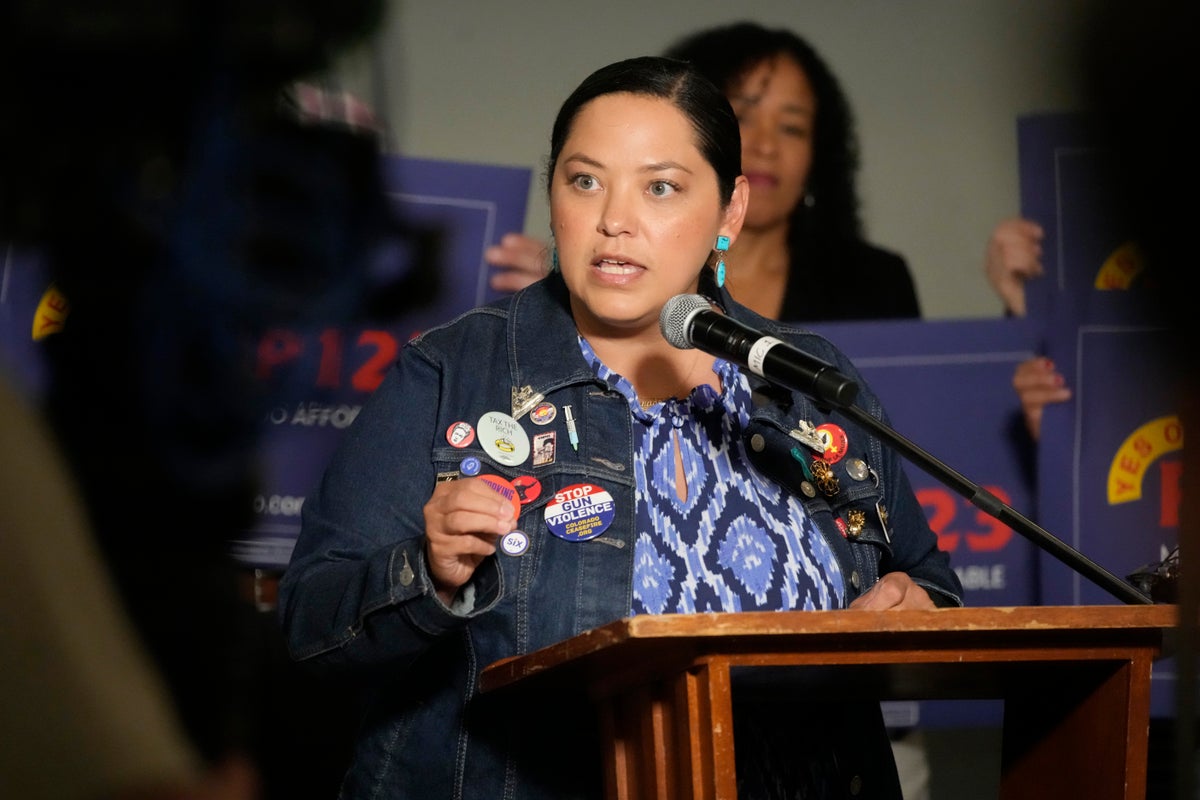
Fed up with sky-high housing prices, Coloradans are taking the issue into their own hands with a November ballot initiative that would direct a portion of the state's income taxes to affordable housing projects.
As housing crises bubble up nationwide, Colorado's Proposition 123 is the first statewide housing initiative in the country to make the ballot for the 2022 election, according to a database of ballot measures maintained by the National Conference of State Legislatures.
“We’ve reached a tipping point and we cannot continue to wait on the sidelines and hope that something happens,” Jackie Millet, mayor of the Denver suburb of Lone Tree, told a campaign kickoff event Tuesday in Aurora.
If the measure passes, it would direct .1% of Colorado's income taxes to a number of programs that include helping essential workers, such as teachers and nurses, become homeowners, while financially supporting local governments in increasing the number of affordable homes by 3% every year.
The campaign says the measure could raise around $300,000 annually and build 170,000 homes and rental units over two decades, with a focus on giving local governments the ability to decide how best to spend money raised by the measure.
Recent data from the U.S. Census Bureau found that Colorado faces a shortage of about 225,000 homes.
Proponents said Proposition 123 could help make up that deficit while avoiding a tax hike.
But the money is also expected to eat into tax refunds guaranteed to residents under a constitutional amendment called the Taxpayer's Bill of Rights. Colorado's TABOR caps the amount of money the government can spend annually and mandates refunds of any revenue surpassing that cap.
Any changes to TABOR must be approved by voters.
“There's nothing affordable about taking $300 million of our TABOR tax refunds for a flawed housing measure,” said Michael Fields, senior adviser for Advance Colorado Action, a conservative advocacy group. Fields added that “nobody really knows how many new units would be created by this measure.”
Advocates are optimistic about the proposition's chances of passing, believing that the hike in rents and home values brought on by the pandemic will encourage Coloradans of any political party to vote for the initiative.
A poll from The Colorado Health Foundation suggests that 86% of Coloradans said housing costs are a serious concern.
“State by state by state, we can be doing more,” said Julie Gonzales, a Democrat state senator and backer of the initiative. She added that the federal government needs to step up as well.
Jordan McDonald, a certified nursing assistant, said that she and her husband, who is a teacher, have been unable to find an affordable home as they expect their first daughter.
Fewer than one-fifth of homes in the state in 2021 were affordable on an average teacher's salary in their respective district, according to an August report from the Keystone Policy Center.
“We need more of our elected officials to step up to the plate on this issue,” said McDonald.







